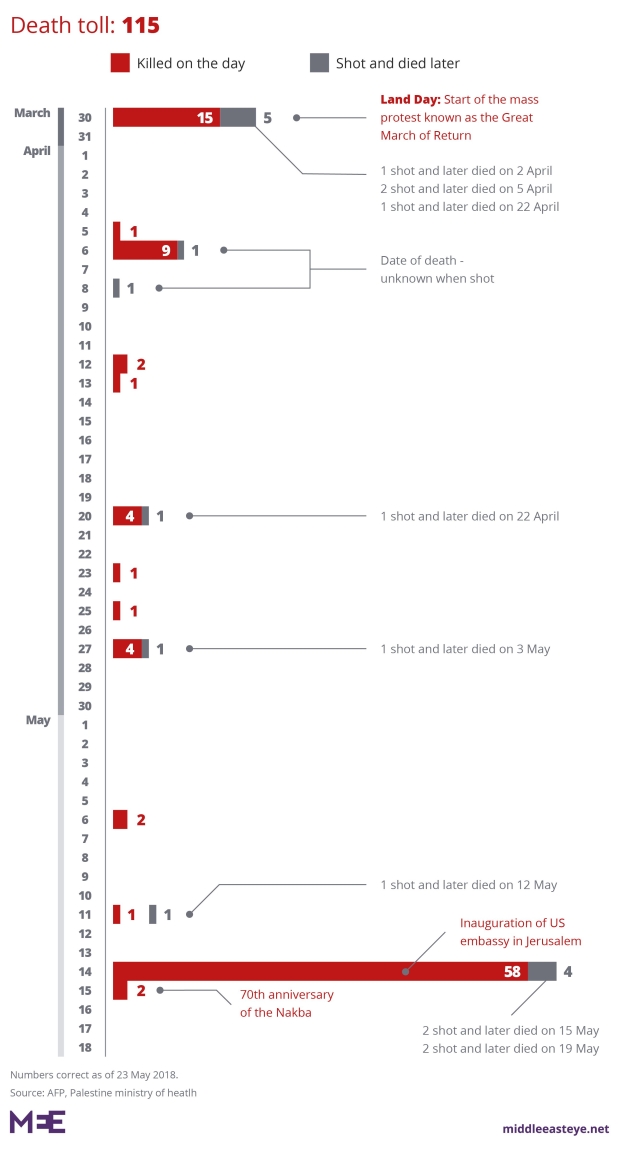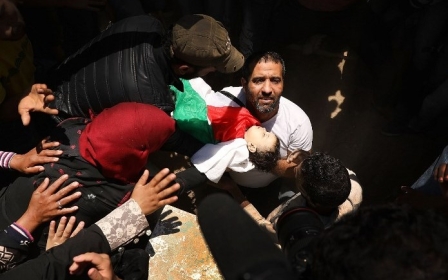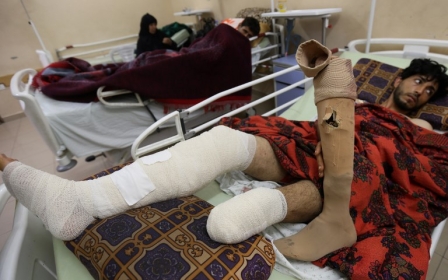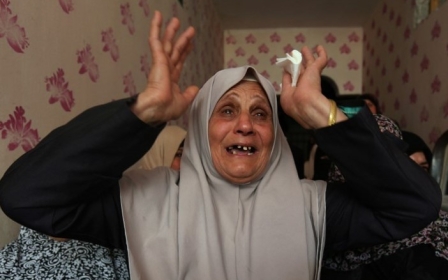Israel's top court approves use of live fire against Gaza protesters
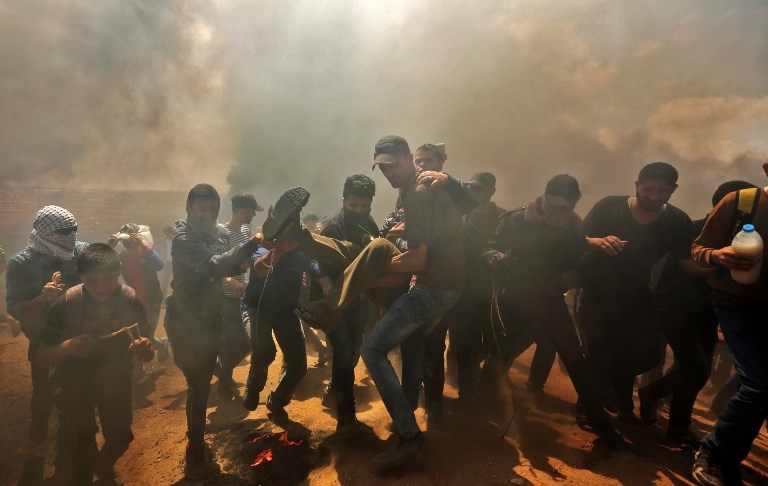
Israel’s Supreme Court on Thursday unanimously dismissed a petition by two human rights groups that accused Israel’s military of violating the law by using snipers and live ammunition against peaceful Palestinian protesters in Gaza.
The court ruled that the use of live fire was legal because the protesters constituted a real danger to Israeli soldiers and citizens. It also said that Hamas, which controls Gaza but is designated a terrorist organisation by Israel, intentionally mixed its members with civilians.
This ruling comes as protests are expected to take place this evening in the Gaza Strip.
A 24-year-old Palestinian man died on Friday after succumbing to wounds sustained several days ago from Israeli fire, according to the Gaza health ministry. Officials did not give further details of when he was shot but said that the incident took place during demonstrations along the buffer zone.
Funerals also took place on Friday to commemorate the deaths of Palestinians who died after being wounded last week by Israeli fire Gaza's buffer zone with Israel.
The Gaza health ministry confirmed it had removed Leila al-Ghandour, an eight-month-old baby who died last week, from the list of those killed by Israeli forces during the protests. The ministry said health officials were still determining her cause of death, claiming she may have had a "pre-existing condition".
Adalah and Al Mezan filed the petition on 23 April in response to the killing of dozens of Palestinians by Israeli soldiers over weeks of protests near the Gaza border fence.
However, the death toll rose sharply on 14 May when more than 60 people were shot dead and thousands were injured while taking part in protests to mark the opening of the US embassy in Jerusalem.
Smaller protests, and further deadly shootings, took place on Tuesday 15 May, the 70th anniversary of the Nakba, or 'catastrophe', when hundreds of thousands of Palestinians were forced into exile as Israel was created in 1948.
The casualties raised the death toll since 30 March, the day when the six-week Gaza "Great March of Return" began, to at least 115, with hundreds more still in hospital with serious injuries.
Those killed include 12 children, two journalists, and three people with disabilities, with 45 percent of casualties shot in the head, face or neck, according to figures published by Adalah.
In a statement on Thursday, Adalah and Al Mezan said: “The Israeli Supreme Court completely ignored the broad factual basis presented to it by the petitioners, which includes multiple testimonies of wounded and reports of international organisations involved in documenting the killing and wounding of unarmed protesters in Gaza."The human rights organisations said the court had "refused to watch video clips documenting Israeli shootings of demonstrators and, rather than actually examining the case, fully accepted the claims presented to it by the state. The extreme nature of the ruling is also highlighted by the striking absence of any mention of the casualty figures that had been presented to the court."
Avigdor Lieberman, Israel's defence minister, praised the ruling on Twitter, writing: “The High Court of Justice unanimously rejected the petitions of the pestering left-wing Zionist organisations against the IDF’s strong and steadfast stance against the enemy in Gaza.
“It is time for you to understand that while you are trying to strengthen our enemy, the IDF is also protecting you,” Lieberman wrote, referring to Israel's military.
The petition had called out Israel for using “excessive force” and said that its "open-fire policy is illegal”.
“The military informed the supreme court that it shoots people in Gaza who are allegedly 'leading inciters or breachers of order'; they did not claim that the people shot were armed or that they posed an immediate threat to the lives of others,” it read.
“This is a violation of international law, amounting to willful killing and injury, and constituting war crimes under Article 8 of the Rome Statute,” the petition said.
The Israeli army insists its actions are necessary to defend the frontier between Israel and Gaza and prevent mass infiltrations. Still, rights groups said many people who were killed were nowhere near the fence that Israel had erected on Palestinian territory in Gaza.
The United Nations Human Rights Council last week voted to assign war crimes investigators to look into Israel's response to the protests which was condemned by international human rights organisations including Human Rights Watch and Amnesty International.
During the session, UN human rights chief Zeid Raad al-Hussein condemned Israel for its systematic abuse of Palestinians, including 1.9 million "caged in a toxic slum from birth to death" in Gaza, as he voiced his support for an independent inquiry into the killings.
New MEE newsletter: Jerusalem Dispatch
Sign up to get the latest insights and analysis on Israel-Palestine, alongside Turkey Unpacked and other MEE newsletters
Middle East Eye delivers independent and unrivalled coverage and analysis of the Middle East, North Africa and beyond. To learn more about republishing this content and the associated fees, please fill out this form. More about MEE can be found here.


